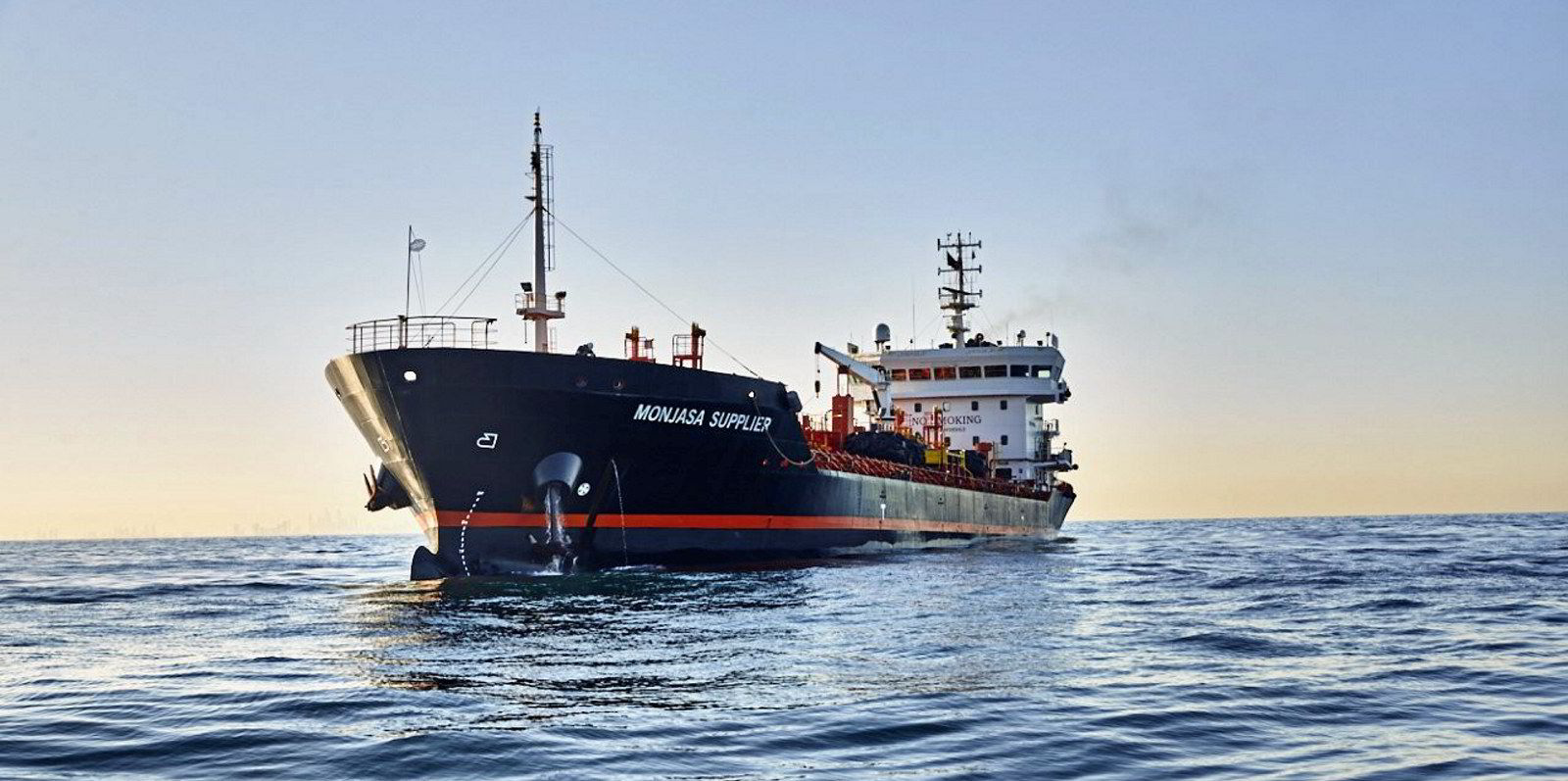Danish ship fuel and tanker group Monjasa is managing to cope with the loss of Russian barrels following the invasion of Ukraine.
But availability has tightened in places as the bunker industry readjusts.
Svend Stenberg Molholt, chief operating officer at Monjasa, told TradeWinds: “The war impacts global trade flow in general and that impacts us as we have a global footprint.
“We also have business in Russia that we’ve stopped doing and we’ve also stopped buying Russian oil, so all of that adds to the complexity of global trade.”
Stenberg Molholt said it is too early to say what effect the conflict will have on its 2022 fuel volumes.
“The market is finding a way of balancing the fact that Russian oil is not finding its way into our markets anymore,” he said. “That puts pressure on prices.
“And the fact that certain commodities are not going out of Russia also changes some trade flows. But since nobody knows how long this will last, then we are still to see the long-term impacts.
“Right now, we are managing the uncertainty. But it is certainly impacting product availability here and there.”
Stenberg Molholt said the market is no longer taking Russian products due to state sanctions and self-imposed “ethical and corporate” sanctions.
“This is pushing oil out of the market,” he argued. “There is still some Russian oil here and there, but the market is converging away from Russian oil.”
Standing with the oil majors
Monjasa sources most of its fuel from oil majors.
“They have taken their own stand, so in that way we are back to back with each others’ stance on sanctions and that’s also why we find product availability not a big issue at the moment,” Stenberg Molholt said.
Analytics platform Vortexa said Russian Baltic and Black Sea oil exports are still falling, with crude rerouted to Asia.
The company said the latest four-week average amounts to 3.9m barrels per day (bpd) —down from an unusually high 4.8m bpd in the previous four weeks.
However, Vortexa added that Russian diesel flows to Europe have barely changed month-on-month, underlining the importance and the lack of readily available supplies of the road fuel.
Bleak outlook
Urals crude cargoes have been observed loading via ship-to-ship transfers on VLCCs off Skaw and Algeciras, likely for Chinese buyers, while suezmax tankers loading from the Black Sea are heading towards India more and more.
The outlook for Russian dirty product exports looks especially bleak given the looming US ban on Russian oil, as the US is a key consumer of secondary feedstocks from Russian refineries, Vortexa believes.
“It is likely that other buyers who still have the option to buy some barrels, albeit in a challenging environment, will focus their attention on the more essential crude and diesel cargoes,” Vortexa senior freight analyst Ioannis Papadimitriou said.
“And the reports of run cuts and suspensions at Russian refineries is likely to cap fuel oil and VGO [vacuum gasoil] exports as well from the supply side.”
Mixed picture for tankers
Tanker tonne-miles out of the Black Sea look relatively stable, while aframax tonne-miles from the Baltic have climbed significantly since late March, with vessels heading towards the Mediterranean and India at the expense of north-west Europe.
“This new recovery seems to be driven by limited vessel supply rather than demand,” Papadimitriou said.
Vessel availability in the Black Sea remains low due to higher demand in other regions that is absorbing suezmaxes.
West Africa and US Gulf coast loadings are drawing away vessels.
Vortexa argues that Europe is increasingly reliant on both regions for crude imports in order to replace Russian barrels.
CPC problems
Exports from the CPC pipeline terminal at Russia’s Novorossiysk have been lower due to mooring buoy storm damage.
An increasing number of vessels are experiencing delays there, but when the flow normalises, ship availability will rise elsewhere in Europe, putting downward pressure on rates, the analyst said.
But suezmax demand will rise with more CPC cargoes coming on to the market, he added.
“This could consequently strengthen rates out of the Black Sea, especially if India continues to buy Russian barrels from the region,” Papadimitriou said.



